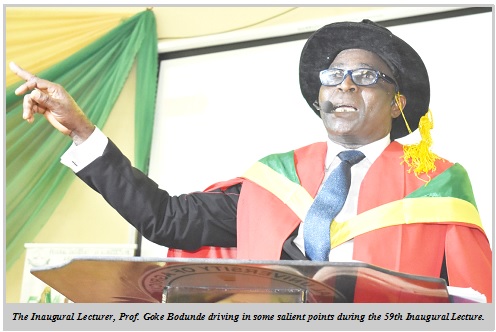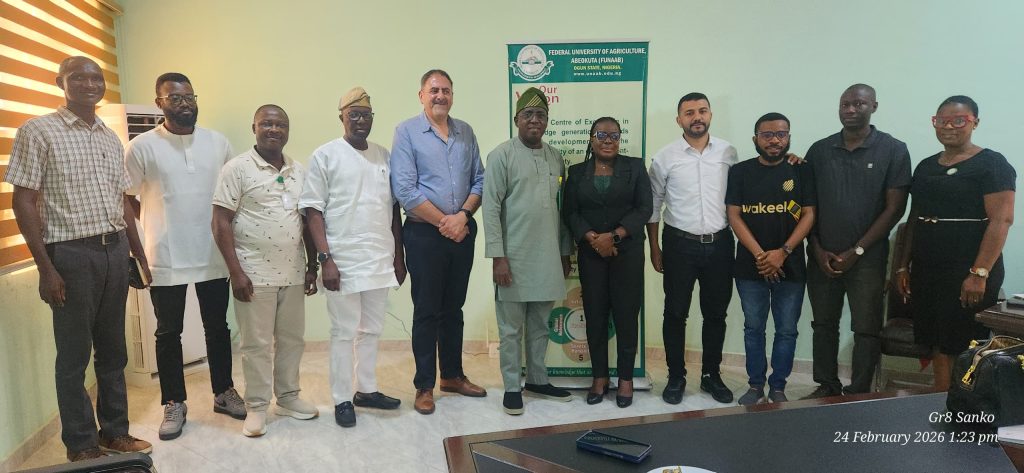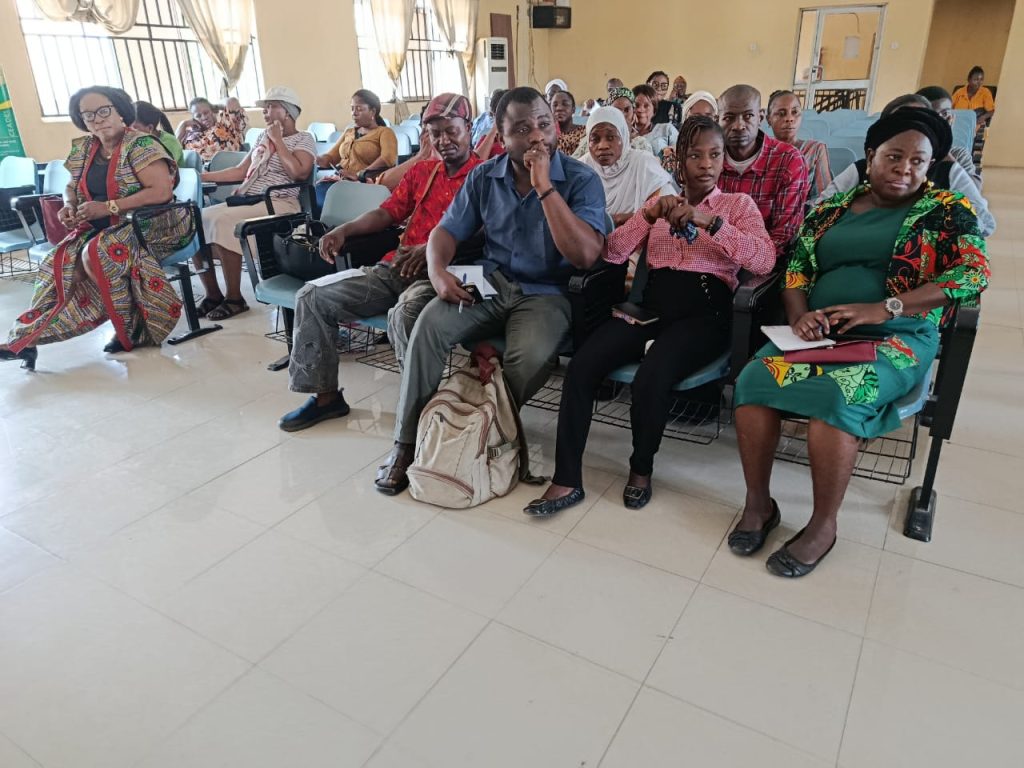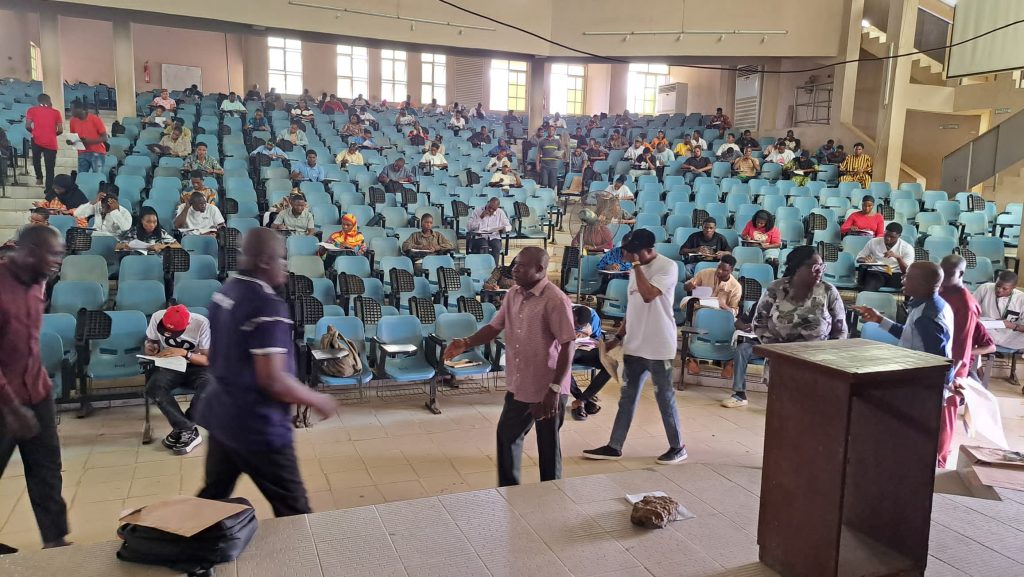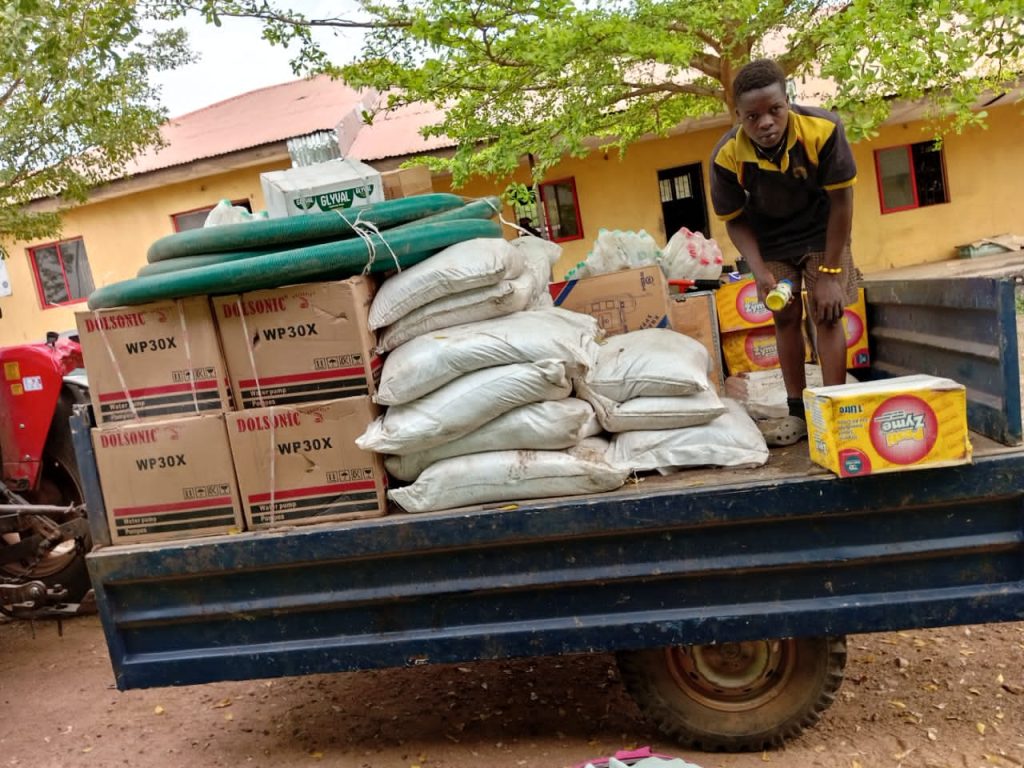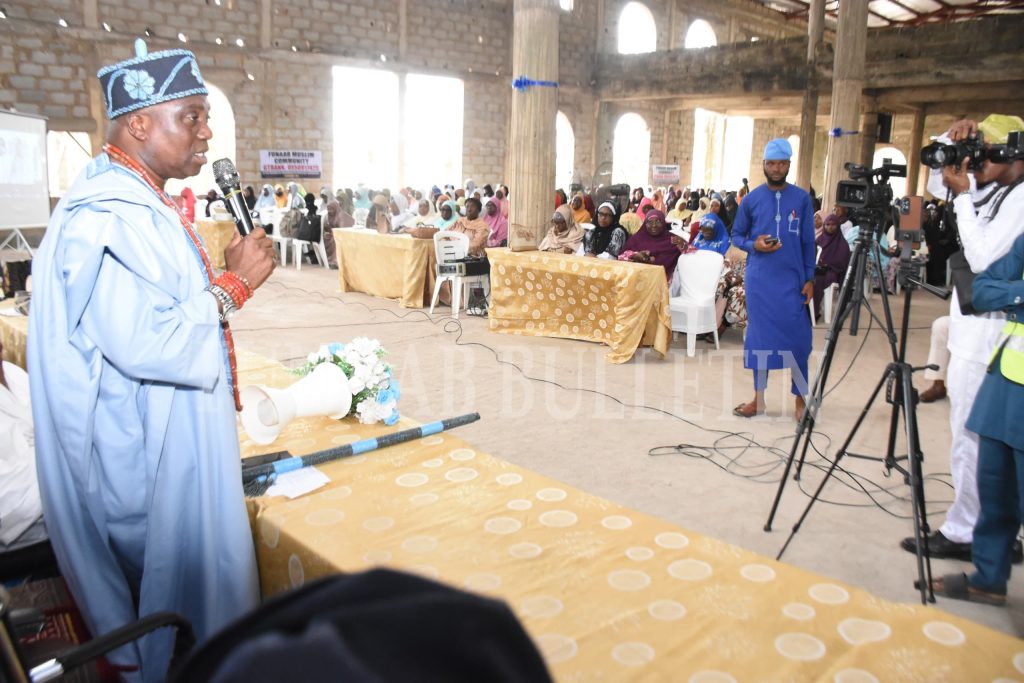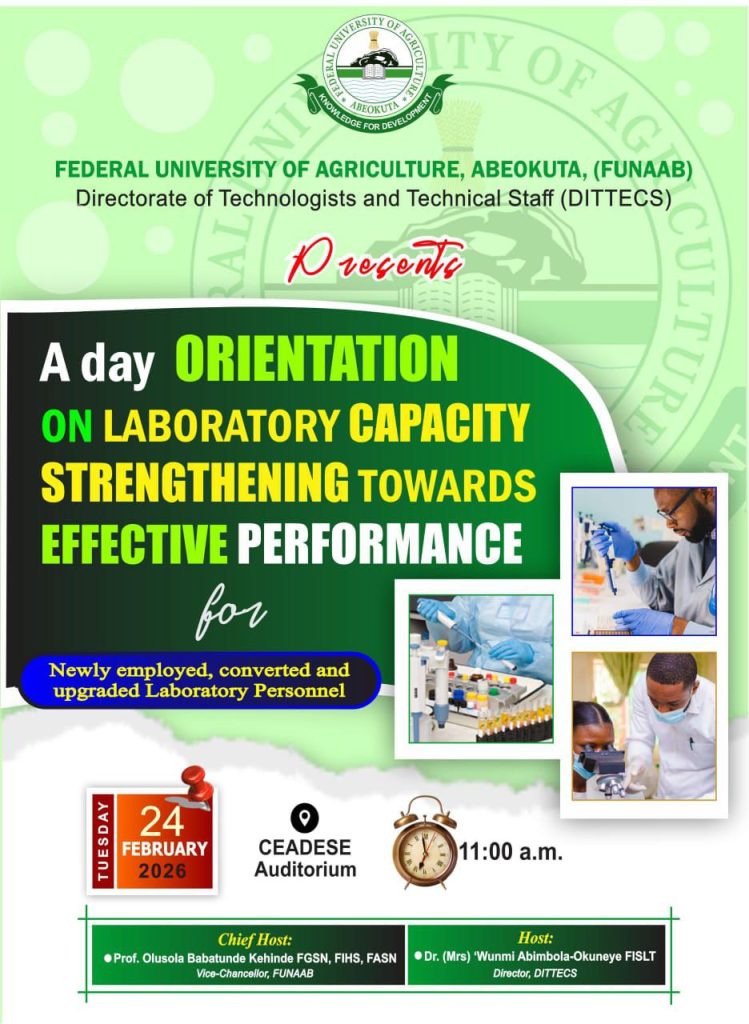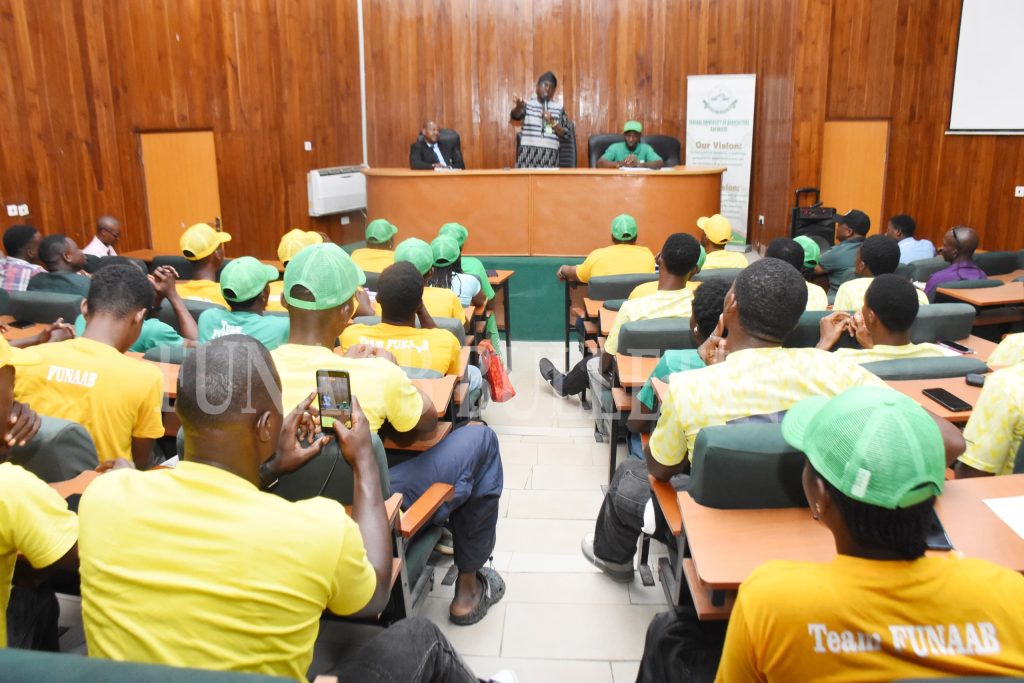Last Updated on October 29, 2019 by FUNAAB
The 59th Inaugural Lecturer of the University, Prof. Goke Bodunde has called on the government to enforce the ban clauses on various agricultural products particularly tomato paste as some imported pastes contain up to 50% starch before dilution in Nigeria where an additional 15% starch is often added.
The Professor of Horticulture and Landscape Management, made this call while delivering his inaugural lecture titled, “Unveiling the Beauty of an Unforbidden Fruit”.
He condemned the importation of substandard tomato paste and the consumption of rotten tomato fruits often called esha in tomato markets of South Western Nigeria, which he attributed to poor yield of tomato.
According to him, although Tomato is considered vital and almost inevitable in human nutrition which qualifies it as one un-forbidden fruit however, Nigeria has the poorest yield performance in the world with about 4-5 tonnes per hectare, compared to Egypt that records a yield of 39.7t/ha and South Africa with 78.7t/ha.
Prof. Bodunde ascribed the low productivity in Nigeria to environmental and Managerial factors, noting that these factors conspire to make Nigeria a producer of just 2% of the total world output of tomato fruits in spite of huge total land area cultivated.
The Inaugural Lecturer stated that on account of low production and the dietary compulsion of tomato in culinary use, a number of abuses detrimental to human health in an attempt to make the product available have been observed.
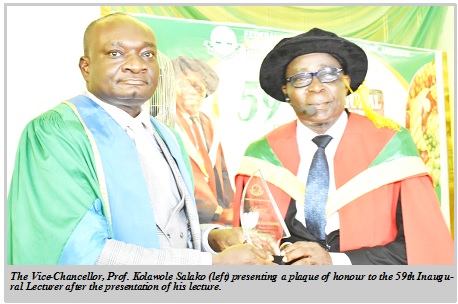
“This is the story of some of the tomato paste and puree imported into Nigeria, 91.1% of which according to NAFDAC (2015), failed to meet the required standard”, he said.
According to him, “It is noteworthy that most of the paste are imported as concentrates in drums and big cans from Italy, India and China. They are usually diluted, packaged and finally canned by various canning industries in Nigeria”.
Speaking on the way forward, the University don recommended that the University which is endowed with huge human and material potentials, can and should promote interest in research along the tomato value chain, through IFSERAR as this can make a difference in tomato availability in south western Nigeria.
He also suggested that Universities and Research Institutes should encourage researchers’ adoption of crop commodities for crop-based research to reap the benefit of comparative advantage of indepth knowledge of individual crops toward improving research and adding value to research results.
Professor Bodunde strongly advocated for investment in tomato canning industry by the private sector and government in Nigeria as well as the promotion of research-industry linkage.
The Inaugural lecturer disclosed that research funding remains a huge limitation to agricultural development in Nigeria and called on relevant arms of government to treat agricultural research funding as a concurrent responsibility for Federal, State and Local Government tiers.
He also advised Government to consider a complementary and functionary means of funding agricultural research in Nigeria through an arrangement similar to how education funding is complemented and subsidized by the Tertiary Education Trust Fund (TETFUND).
Speaking at the occasion, the Vice-Chancellor, Professor Kolawole Salako stated that the 59th Inaugural Lecture was the 6th he would be presiding-over as the Vice-Chancellor.
Professor Salako, described Professor Bodunde as a very effective academic and mentor who has supervised more than 150 undergraduates’ projects and over 60 postgraduate research theses at Masters and Ph.D levels either as a Major or Co-supervisor.

